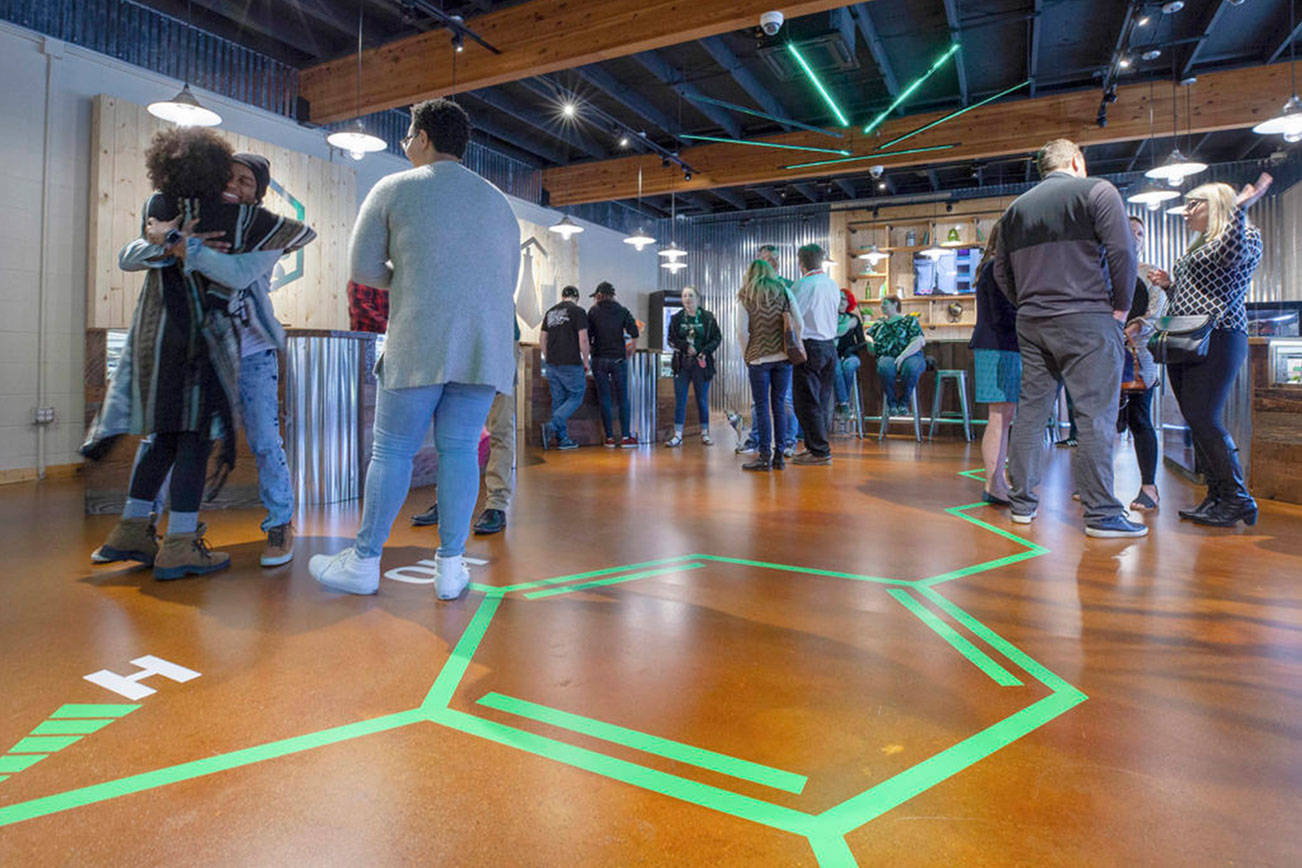Pot stores in unincorporated King County have clustered into a handful of areas in recent years, and the county is looking at ways to change that.
A report that was delivered to the Metropolitan King County Council found that White Center, North Highline and Skyway have higher concentrations of marijuana stores than other parts of the county. In particular, those areas have three or more retail stores within 1,000 feet of each other. However, Seattle’s SODO district has the greatest number of pot shops in the county.
For unincorporated portions of the county, the state Liquor and Cannabis Board (LCB) issued 22 retail licenses, corresponding to the number of small cities in the county. Of the 22 cities, nine have prohibited marijuana retail, production and processing, and six more likely have no locations for these businesses because of local zoning and buffer area regulations.
Marijuana businesses are required to be a certain distance away from businesses and locations that serve children, including schools, day cares and parks. As a result, many parcels both in and outside of cities are off limits for pot shops.
Because of this, the county’s report found that 17 of the 22 licenses have clustered in the highest density commercially zoned areas. These areas generally have a higher percentage of people of color, lower-income families and people who speak English as a second language. Largely, the cities that have prohibited or have taken no action are more affluent and white, according to the report.
To prevent further clustering and to promote more equity in the location of marijuana businesses, the county council has adopted requirements in recent years. The requirements say that new retailers must be at least 1,000 feet from existing marijuana shops, and business owners who violate their permits have a shorter amount of time to correct them.
The report looked into land uses and found there’s significant parcels across the county that could serve not only as places for new pot shops to set up, but also for producers and processors that grow, package and refine marijuana products.
There are some 56 parcels in unincorporated King County that could facilitate up to 10 pot shops. They’re located largely in Fairwood, Coalfield, Fall City, North Highline, Vashon Island and near Snoqualmie Pass.
As of February 2018, as the report was being studied, there were 23 marijuana growers and producers in unincorporated portions of the county that had recorded sales. There were more than 75,000 acres in the county that could facilitate pot growers, and 172 properties that could facilitate businesses that create more potent extracts.
Combined, the report said this allowed more than enough space for businesses to find land.
In addition, the report looked into complaints filed against marijuana businesses. Since 2013, the county’s Department of Permitting and Environmental Review initiated eight code enforcement cases against licensed marijuana businesses, all of which were from the businesses not obtaining the right permits, instead of common neighbor concerns of water, wildlife, traffic or noise complaints.
The county also looked at some two dozen parcels that house pot shops. It found the total number of times police were called as a result of alarms had increased, but noted that because these businesses are required to have sophisticated alarm systems, it didn’t necessarily mean there was a corresponding increase in crimes.
However, the report did find that burglaries had increased more than 360% and robberies had increased 800% on those parcels. The report said this is likely because marijuana retailers deal in cash. Because marijuana is federally illegal, many banks refuse to work with marijuana-related businesses.
“Because the crimes are being committed against the business rather than by customers or staff, it is more correct to say the businesses are vulnerable to these crimes, rather than saying that they cause the crimes,” the report said.
The LCB is trying to get federal regulators to allow credit card use at pot shops.
The report also suggested that when existing retail licenses are cancelled or forfeited, the LCB not renew nine of them. This represents the nine cities that have placed bans on pot businesses. It also requested a special overlay be applied to areas of North Highline and West Hill, which would limit the number of pot shops to four in each area. Existing businesses would be allowed to stay. The report further suggested barring marijuana growers and processors from locating in pedestrian-oriented areas of White Center and Vashon Island.
Talk to us
Please share your story tips by emailing editor@kentreporter.com.
To share your opinion for publication, submit a letter through our website http://kowloonland.com.hk/?big=submit-letter/. Include your name, address and daytime phone number. (We’ll only publish your name and hometown.) Please keep letters to 300 words or less.

